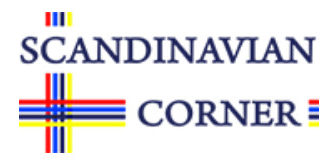Contact
| Scandinavian Corner |
|
| Kapetan Misina 6a (UK Parobrod) 11 000 Belgrade |
|
| E-mail: skandinavski.kutak@gmail.com | |
| Milica Nikolic – co-founder and project coordinator milica.nikolic@skandinavskikutak.org |
|
| Lena Maricic – Consultant for Swedish culture and project assistant lena.maricic@skandinavskikutak.org |
|
| Sofija Vukovic – Consultant for Norwegian culture sofija.vukovic@skandinavskikutak.org |
Scandinavian Corner is an organisation that has as a goal promotion of dominant Scandinavian social and cultural values. The focus of our activities are, first and foremost, non-violence and tolerance, respect for differences, gender equality and human rights, promotion of healthy lifestyle, as well as raising awareness regarding environmental issues.
The idea of creating a space for the promotion of Scandinavian culture has existed in Belgrade for some time now. We have been thinking for a long time how to deal with various obstacles that we met along the way, and despite serious challenges create a space to promote Scandinavian cultural, but also social values. Thanks to a very creative approach and incredible enthusiasm by our friends and potential associates, we gathered enough energy and courage to start a project like this. The organisation was founded in September 2013, and in the first 12 months, when we were all working as volunteers and with no financial support whatsoever for our events, we managed to organise: 15 educational film screenings, more than 25 conversation workshops in Swedish, Norwegian and Danish, as well as 4 lectures.
Scandinavian Corner has participated in several projects. We were media partner to the “Nordic Panorama” film festival in 2014. We participated in the project “Trans Europe Express” that was created as a mutual effort of Global Reporting media company from Stockholm and Kielo agency from Belgrade, and was supported by the Swedish Institute through the Creative Force project, and organised by the so-called Global Bars within the project – a string of public debates on current topics in a relaxed and unconventional atmosphere.
The activities of the Scandinavian Corner have attracted attention of more than 1500 people. We are also proud of the fact that our Facebook page now has more than 2000 followers.







